news
BREAKING : One-Year Anniversary: Tinubu is Ready to Fire Any Minister that Fails to Deliver on His Administration’s Eight-Point Agenda, Says Onanuga
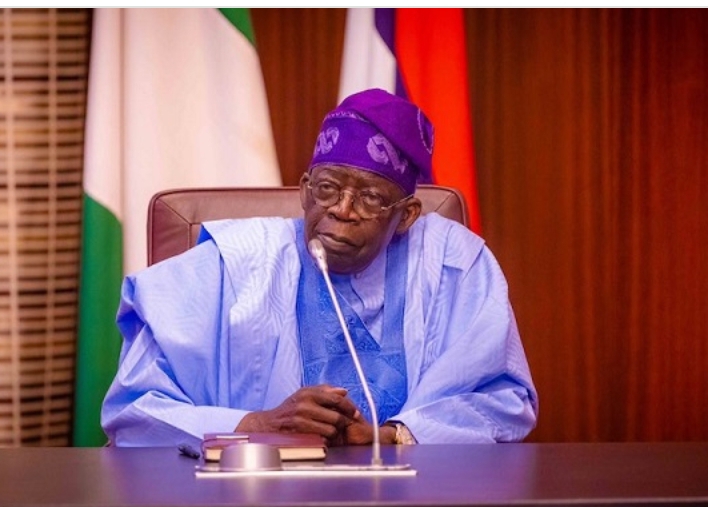
 President Bola Tinubu is ready to fire underperforming ministers who fail to deliver on targets set for them, the Presidency has said.
President Bola Tinubu is ready to fire underperforming ministers who fail to deliver on targets set for them, the Presidency has said.
The Special Adviser on Information and Strategy to the President, Bayo Onanuga, speaking in an exclusive interview with Media team, said though the President was yet to decide on the ministers’ performances, he had told them to deliver on his administration’s eight-point agenda. He added that those found wanting would be asked to leave the cabinet.
Onanuga also rated the performance of the administration high as it approaches its first year in office, giving it a score of 70 per cent.
He said when President Tinubu took over, Nigeria was using 97 per cent of its revenue to service debt, and was borrowing for recurrent expenditure, which include the payment of salaries, adding that the administration brought the nation back from the brink of economic collapse with the implementation of bold policies, such as the removal of fuel subsidy, and the unification of the exchange rate.
President Bola Tinubu, had while inaugurating his 48 ministers, advisers, and other aides, urged them to put aside their personal interests and focus on his government’s immediate concern of pulling Nigeria out of poverty.
The President gave the advice at the close of a three-day retreat for ministers, permanent secretaries, presidential aides, and other top government officials at the State House, Abuja, last year after they were appointed.
He told the participants that they had the responsibility of changing the narrative about the country, noting that if they had any problem with Nigeria, they should have a conversation about it.
President Tinubu stressed the need for the officials to bond and ensure that the country recovered from ‘elephantiasis’.
He said, “We have gathered here to shape the future, no threat about it. The responsibilities we bear are not just titles; they are the hopes and aspirations of millions of Nigerians.
“You might be ready to forget about the rest of the world but as a Nigerian, let’s go out there, let’s bond together and make sure our country is fully recovered from elephantiasis.
“Let me remind you that you are not here to make excuses; neither am I. I am your friend, brother, father and grandfather.
“You must put outside personal ambitions and focus on the progress of our nation. It is through this that we can be truly proud. I am proud to stand before you. I am very proud of all of you. And, I am proud of myself too. I contested the election and won with your support. They took me to court, and I won.”
The President also extracted the commitment of the ministers and other government officials to work together as a team to achieve the goals of his government, asking, “We are about to close this three-day cabinet retreat, are we proud that we are Nigerians? Are we sure that we’ve done this? Is the responsibility of the permanent secretary clear in partnership with the minister? Are we one family?
“Since we are one family and one nation, and we are in this vehicle together to change the narrative and bring about the economic prosperity of our country. Are we ready?”
The President further told his ministers and other aides, “We have a responsibility to our country to make sure we completely change the narrative about Nigeria.
“If we have problems, let’s talk to one another. Let’s have gentle conversations about our country. It is not about ‘just leave me alone, I’m going home’; you may not have a home.
“There’s nothing you can do successfully without good healthcare and poverty reduction. Like I said before, poverty is not a shameful thing, but it is not acceptable. Are we going to dig our people out of it?”.
There has, however, been some disquiet around the country as Tinubu counts days to his first anniversary.
From rising inflation to insecurity and a shaky exchange rate, the country, according to analysts, still has a long way to go.
Although the President inherited a struggling economy, he promised to get it running in no time.
Tinubu, in his 80-page policy document, highlighted an eight-point agenda, with national security and economy topping the list.
Others include agriculture, power, oil and gas, transportation, and education.
In his manifesto, Tinubu said his objective was to foster a new society based on shared prosperity, tolerance, compassion, and the unwavering commitment to treating each citizen with equal respect and due regard.
He promised to build a Nigeria, especially for the youth, where sufficient jobs with decent wages create a better life.
He said, “Manufacture, create and invent more of the goods and services we require. Nigeria shall be known as a nation of creators, not just of consumers. Export more and import less, strengthening both the naira and our way of life. Continue assisting our ever-toiling farmers, through enlightened agricultural policies that promote productivity and assure decent incomes, so that farmers can support their families and feed the nation.
“Modernise and expand public infrastructure so that the rest of the economy can grow at an optimal rate.
“Embolden and support our young people and women by harnessing emerging sectors such as the digital economy, entertainment, culture and tourism, and others to build the Nigeria of tomorrow, today.
“Train and give economic opportunities to the poorest and most vulnerable among us. We seek a Nigeria where no parent is compelled to send a child to bed hungry, worried whether tomorrow will bring food.”
He also vowed that his government would generate, transmit and distribute sufficient, affordable electricity to give people the requisite power to enlighten their lives, homes, and dreams.
“Make basic healthcare, education, and housing accessible and affordable for all; and, most importantly, establish a bold and assertive policy that will create a strong yet adaptive national security architecture and action to obliterate terror, kidnapping, banditry, and all other forms of violent extremism from the face of our nation.”
On May 29, as he was sworn in, the president removed petrol subsidy, which many economic analysts said was responsible for corruption and waste in the oil sector.
This was greeted by outrage, with protests erupting in several locations as a result of the high cost of Premium Motor Spirit, transportation, and food items.
Inflation rose astronomically and has continued to do so month-on-month.
As of April 2024, the headline inflation rate increased to 33.69 per cent relative to the March 2024 headline inflation rate, which was 33.20 per cent, according to the National Bureau of Statistics.
In February, the headline inflation rate increased to 31.70 per cent relative to the January 2024 headline inflation rate, which was 29.90 per cent.
Meanwhile, the February 2024 headline inflation rate showed an increase of 1.80 per cent (five points), when compared to the January 2024 headline inflation .
Unemployment also rose to about 4.1 per cent, with over 60 per cent of the youth either unemployed or underemployed.
In commemoration of his first anniversary in office, Tinubu directed his ministers to present their performance reports to Nigerians.
The Minister of Information and National Orientation, Mohammed Idris, while announcing this at a press briefing in Abuja on Wednesday, said the low-key first-anniversary celebration would be marked with sectoral media briefings by the 47 federal ministers.
Idris was joined at the press conference by the Secretary to the Government of the Federation, Senator George Akume; and the Minister of Budget and Economic Planning, Abubakar Bagudu.
On January 24, 2024, the agency in charge of the assessment, the Central Delivery Coordination Unit, trained at least 140 officials to track and assess the performance of federal ministries, departments and agencies ahead of the assessment.
Speaking on Arise TV’s News Night programme in April, the President’s Special Adviser on Policy Coordination, Hadiza Bala-Usman, who also heads the CDCU, affirmed that the unit had received performance reports from at least 20 ministries.
She explained that the assessment report would be the joint effort of the ministers, citizens and industry experts.
Meanwhile, in April, the Presidency unveiled a citizens’ feedback platform in a bid to get a ‘strong feedback loop between citizens and government’ on the eight priority areas of the current administration.
Bala-Usman, who disclosed this at the Go-Live event of the CDT held in Abuja that month, said the creation of the application was informed by President Tinubu’s decision to assess his ministers and heads of agencies based on key performance indicators.
Bala-Usman added that the eight priority areas for the assessment of the ministers’ performances in the App included reforming the economy to deliver sustained inclusive growth, strengthening national security for peace and prosperity, boosting agriculture to achieve food security, and unlocking energy and natural resources for sustainable development.
Others are to enhance infrastructure and transportation as enablers of growth; focus on education, health, and social investment as essential pillars of development; accelerate diversification through industrialisation, digitisation, creative arts, manufacturing and innovation; and improve governance for effective service delivery.
Also, in an interview in October 2023, Bala-Usman provided extensive details about the application and its expected deliverables.
She had said, “We are going to deploy an application— a software— where citizens can report back on project-based deliverables that the Federal Government has committed to doing within the period to 2024.”
Detailing the process at the time, she said, “We sat with the Office of the Secretary to the Government of the Federation. We have worked effectively to define the exact deliverables for each ministry.
“Those deliverables cascade to the agencies of government. So, for example, you have deliverables for the health sector, and everything that is contained within the value chain or the ecosystem within that sector will be contained within the deliverables.
“Those deliverables are translated into key performance indicators for the respective ministries. Once you have your key performance indicators, you’re able to clearly understand what your deliverables are over the period of the four years of the administration.”
However, an analysis of the feedback reports from the application made available to our correspondence showed that some Nigerians rated the Minister of Power, Adebayo Adelabu; Minister of Defence, Mohammed Badaru Abubakar; Minister of Education, Prof Tahir Mamman; and the Minister of Agriculture and Rural Development, Mohammad Abubakar, very poorly, giving each of them one mark out of a possible five.
However, Onanuga insisted that the President had done well given what he met on the ground.
While promising that the administration would deliver more on its promises in the next 12 months, the president’s Special Adviser on Information and Strategy said Tinubu would sack ministers who failed to perform and meet the targets set for them.
He said, “President Tinubu has already told them (the ministers) they will go if they can’t perform. He told them at the retreat last year that the government has an eight-point agenda, and he expects the ministers to deliver on it. Those who are found wanting would have to go. But, as of today, the President has not made any decision on that.”
Onanuga also stated that while the President had not announced that he would reshuffle his cabinet, he wanted them to be accountable, adding that that was why he asked them to present their scorecards, even though they had only spent eight months in office.
“The president has not said he is going to reshuffle. Let me explain something. None of those ministers have spent one year in office. They came in last August. The president wants them to be accountable. That’s why he told them to come out and give their scorecards, to talk about what they have done in the last eight months. When you see what they have done, you cannot but give this government, in its first year, a 7/10 for the various achievements that his ministers and, by extension, his government have achieved.”
However, the main opposition party, the Peoples Democratic Party does not see anything good to cheer about the one year in office of President Tinubu.
Faulting claims by the All Progressives Congress that President Tinubu had done very well and that Nigerians would rate him highly, the Acting National Chairman of the PDP, Umar Damagum, described the first year stewardship of the president as ‘an abysmal failure’.
Also reacting, the Deputy President of the Labour Party, Ayo Olorunfemi, said the presidency was only deceiving Nigerians to think that President Bola Tinubu had done well in his first year in office.
He criticised the president and the APC, saying Tinubu’s administration had only taken citizens from ‘frying pan to fire’.
He said, “They have done well to themselves as a nuclear family. They are nuclear families. Nigeria is roasting in poverty, people can no longer feed, hopelessness has taken over the land, and anarchy is taking over. So, what is it that he has done? What is it that this government and its political party have done in the past nine years?
“They took us from frying pan to fire. That is exactly what they have done in the past nine years. I don’t think they have done anything good. They are just deceiving us, believing that Nigerians are fools.”
In his reaction, a public affairs analyst, Dr Emma Jimo, in an interview with media house, highlighted the government’s failure to address basic needs despite promises of renewed hope.
He said, “Pick education, for example. The government is performing poorly. Maybe the highest point is the government taking responsibility to pay the backlogs of the previous government’s indebtedness to ASUU. Even at that, it is still poor. Aside from that, look at what binds all Nigerians together – the economy.
“This government is performing poorly on the standard of living. The cost of living has gone up astronomically. The measures put in place to run the economy have not been working. They failed woefully, and they are still failing.”
In a similar vein, another analyst, Dr Anthony Ahmedun. Said that the current administration had disappointed Nigerians with its performance in one year, adding that it had continuously made poor decisions that were rejected by the citizens.
The academic said, “I had believed the Tinubu-led government would be able to take Nigeria to a greater height from the mess the previous administrations left us, looking at his (Tinubu’s) experience in politics, and especially his role in Lagos State. But to my utmost disappointment, the current administration has not met expectations at all.
“Economy wise, especially, because I felt he was coming in with the economic idea of Lagos, and should be able to help the economy of Nigeria. But, he has not been able to do so in any way. We can see how unstable the naira has been. We have also seen some wrong decisions taken, such as naira devaluation and subsidy removal.”
news
Update : FG confirms continuation of crude, refined product sales in Naira initiative, Says Wale Edu

 The Federal Government has confirmed the crude and refined product sales in Naira initiative remains a standing national policy and will continue indefinitely.
The Federal Government has confirmed the crude and refined product sales in Naira initiative remains a standing national policy and will continue indefinitely.
However, the policy will stay in place as long as it serves the public interest and supports Nigeria’s broader economic goals.
This assurance was contained in the official X (formerly Twitter) handle of the Federal Ministry of Finance on Wednesday morning amid growing inquiries on the status of the policy.
The Ministry stated the initiative, first approved by the Federal Executive Council (FEC), is a long-term strategic directive and not a short-term or provisional measure.
According to the Ministry, stakeholders have reconvened to reiterate their full support and ongoing commitment to ensuring the successful implementation of the initiative.
The policy, which mandates the transaction of crude oil and refined petroleum products in Naira, is aimed at strengthening the country’s economic sovereignty, enhancing local refining capacity, and stabilizing the foreign exchange market by reducing the demand for dollars in domestic petroleum transactions.
The Ministry explained that this policy is structured to foster energy security and encourage investment in domestic refining infrastructure.
“The Crude and Refined Product Sales in Naira initiative is not a temporary or time-bound intervention, but a key policy directive designed to support sustainable local refining, bolster energy security, and reduce reliance on foreign exchange in the domestic petroleum market,” the statement reads.
While acknowledging that the transition involves complexities, the government admitted that existing challenges are being systematically addressed.
“As with any major policy shift, the Committee acknowledges that implementation challenges may arise from time to time. However, such issues are being actively addressed through coordinated efforts among all parties,” the Ministry said.
To assess the progress made and address lingering implementation issues, the Technical Sub-Committee on the Crude and Refined Product Sales in Naira initiative held a review meeting on Tuesday. The gathering brought together key figures involved in the execution of the policy.
Among the attendees were the Minister of Finance and Coordinating Minister of the Economy, Mr. Wale Edun, who chairs the Implementation Committee; and the Executive Chairman of the Federal Inland Revenue Service (FIRS), Mr. Zacch Adedeji, who heads the Technical Sub-Committee.
Also present were the Chief Financial Officer of NNPC Limited, Mr. Dapo Segun; the Coordinator of NNPC Refineries; Management of NNPC Trading; representatives from the Dangote Petroleum Refinery and Petrochemicals; and senior officials from the Nigerian Upstream Petroleum Regulatory Commission (NUPRC), the Nigerian Midstream and Downstream Petroleum Regulatory Authority (NMDPRA), the Central Bank of Nigeria (CBN), and the Nigerian Ports Authority (NPA). A representative from Afreximbank and the Secretary of the Committee, Hauwa Ibrahim, also attended.
This policy, which aligns with the government’s broader economic reform agenda, is expected to support local content development, ease pressure on Nigeria’s foreign reserves, and provide a more predictable pricing structure for refined petroleum products in the domestic market.
The presence of major players from both the public and private sectors at the meeting shows the scale of collaboration required to sustain the policy. It also reflects the growing confidence in Nigeria’s shift toward economic policies that prioritize local capacity and currency resilience.
news
Breaking : TInubu appoints Bashir Ojulari as new CEO group of NNPC and GMD mele kyari get sacked, Says Onanuga
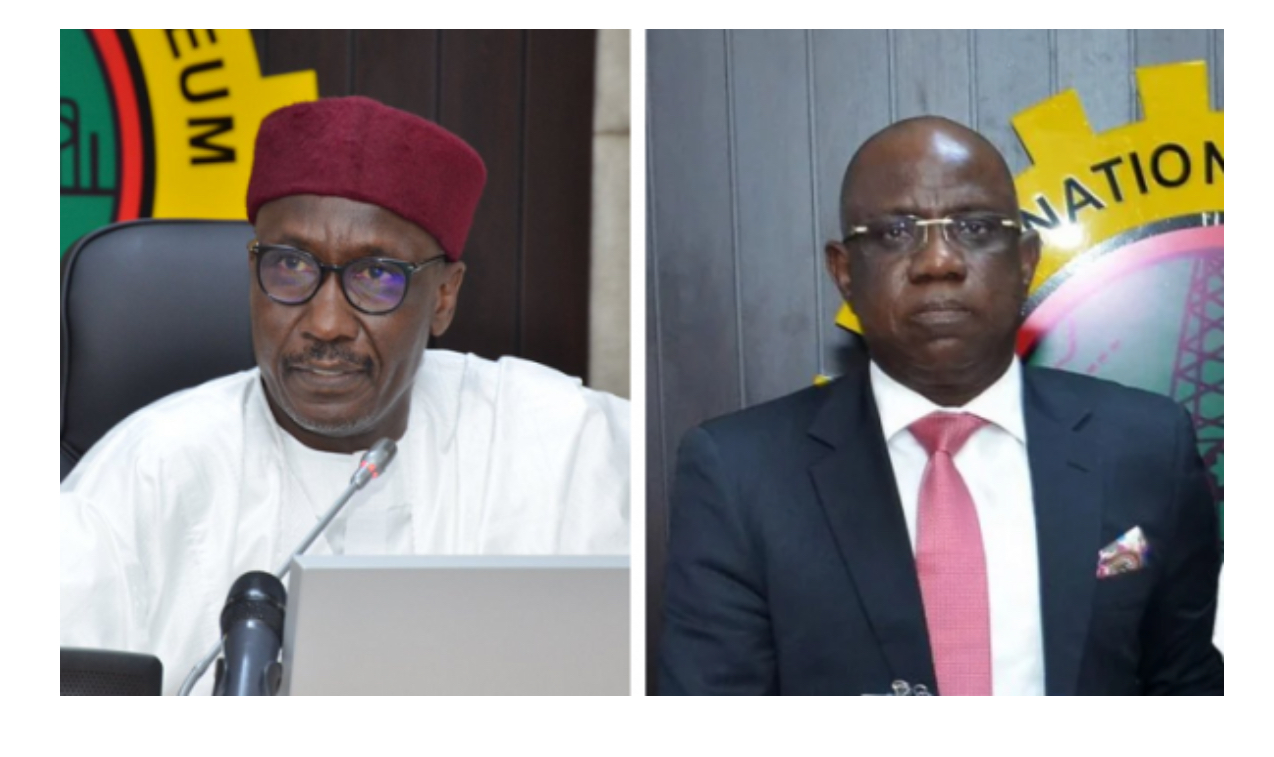
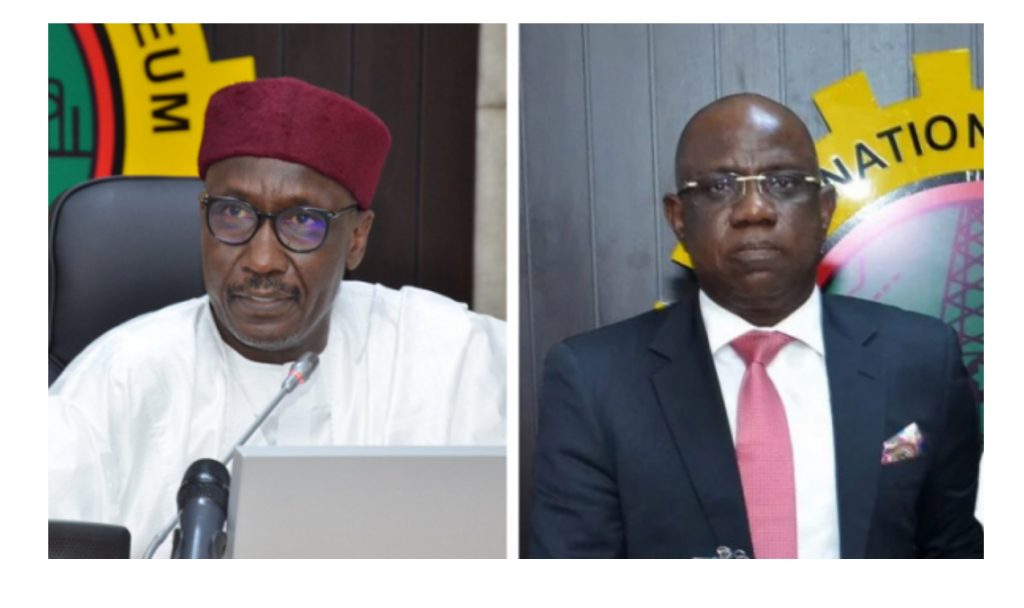 President Bola Tinubu has sacked the board of the Nigerian National Petroleum Company (NNPC) including its Group Chief Executive Officer, Mele Kyari and board chairman Pius Akinyelure.
President Bola Tinubu has sacked the board of the Nigerian National Petroleum Company (NNPC) including its Group Chief Executive Officer, Mele Kyari and board chairman Pius Akinyelure.
The decision, effective April 2, 2025, was announced in a statement by presidential spokesperson Bayo Onanuga.
President Tinubu cited the need for enhanced operational efficiency, restored investor confidence, and a more commercially viable NNPC as the driving forces behind the decision.
Invoking his powers under Section 59(2) of the Petroleum Industry Act (PIA) 2021, he reconstituted the board with new leadership aimed at repositioning NNPC Limited for greater productivity and alignment with global best practices.
Kyari was first appointed NNPC chief by former President Muhammadu Buhari but was reappointed in 2023 by President Tinubu.
As part of the overhaul, Bayo Ojulari takes over from Kyari as the new group CEO, while Ahmadu Musa Kida has been appointed as NNPC’s new non-executive chairman, replacing Pius Akinyelure. Also, Adedapo Segun has been confirmed as the company’s chief financial officer (CFO).
In line with the PIA, the president also appointed six non-executive directors from each geopolitical zone.
They include Bello Rabiu representing the north-west, Yusuf Usman from the north-east, and Babs Omotowa, a former managing director of the Nigerian Liquefied Natural Gas (NLNG), for the north-central.
Others are Austin Avuru for the south-south, David Ige for the south-west, and Henry Obih for the south-east.
Meanwhile, Lydia Shehu Jafiya, the permanent secretary of the federal ministry of finance, and Aminu Said Ahmed of the ministry of petroleum resources will represent their respective ministries on the new board.
“This restructuring is aimed at repositioning NNPC Limited for greater productivity and efficiency in line with global best practices. We are taking bold steps to transform the company into a more commercially driven and transparent entity,” the statement reads.
The changes take effect immediately, and the new board has been handed a strategic action plan, which includes a “review of NNPC-operated and Joint Venture Assets to ensure alignment with value maximisation objectives”.
news
Tinubu commended Nandap for her leadership, extends Comptroller-General tenure till 2026, says Onanuga
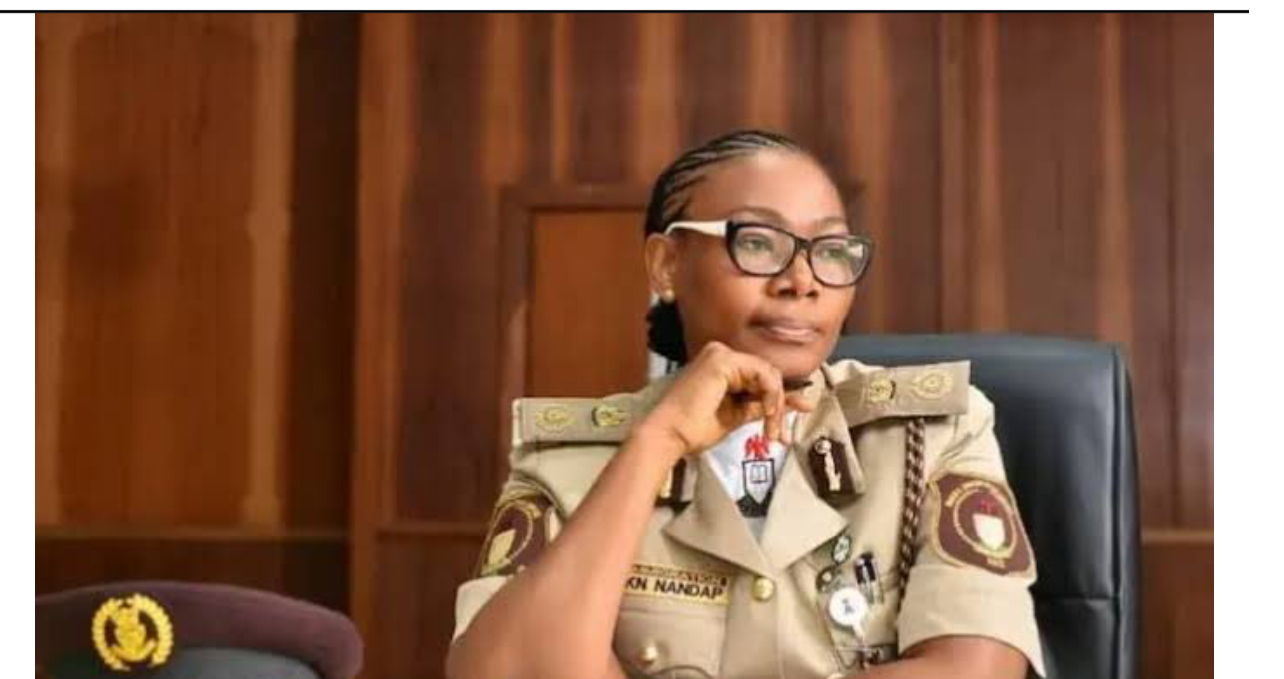
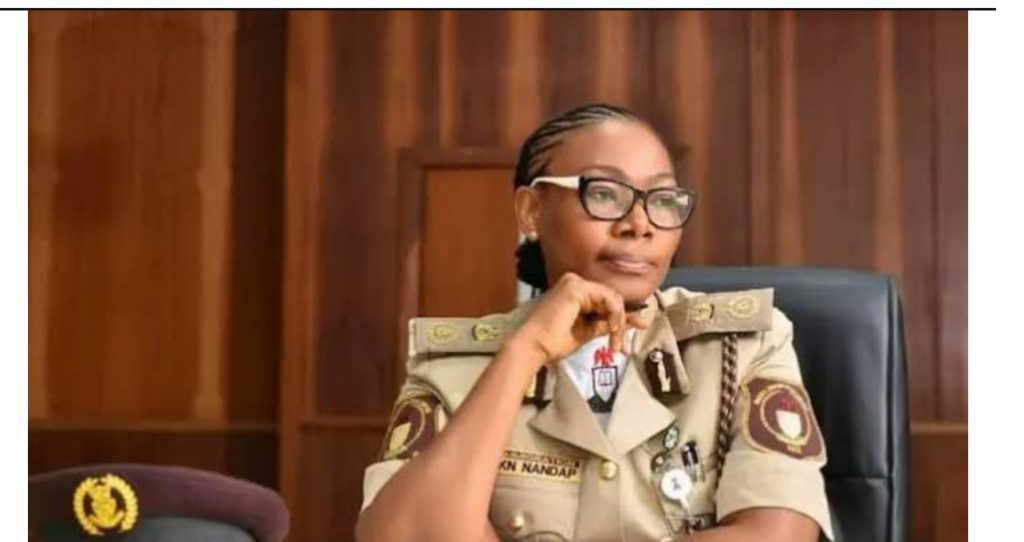 President Bola Tinubu has approved the extension of the tenure of the Comptroller-General of the Nigeria Immigration Service, Kemi Nandap, until December 31, 2026.
President Bola Tinubu has approved the extension of the tenure of the Comptroller-General of the Nigeria Immigration Service, Kemi Nandap, until December 31, 2026.
Nandap, who joined the NIS on October 9, 1989, was appointed as Comptroller-General on March 1, 2024, with an initial tenure set to end on August 31, 2025.
A statement by the president’s Special Adviser on Information and Strategy, Bayo Onanuga, on Monday, said for her leadership, noting improvements in border management, immigration modernisation, and national security under her watch.
“Under her leadership, the Nigeria Immigration Service has witnessed significant advancements in its core mandate, with notable improvements in border management, modernisation of immigration processes and national security measures.
“President Tinubu commended the Comptroller-General for her exemplary leadership and urged her to continue dedicating herself to the Service’s strategic priorities, which align with his administration’s Renewed Hope Agenda,” the statement read.
He also reaffirmed his commitment to supporting the NIS in safeguarding Nigeria’s borders and ensuring safe and legal migration.
-

 news4 years ago
news4 years agoUPDATE: #ENDSARS: CCTV footage of Lekki shootings intact – Says Sanwo – Olu
-

 news1 year ago
news1 year agoEnvironmental Pollutions : OGONI COMMUNITY CRIES OUT, THREATENS TO SHUT DOWN FIRSTBANK,SHELL OIL COMPANY OPERATIONS FOR NOT PAYING COURT AWARD
-
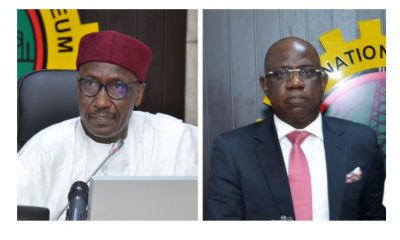
 news1 week ago
news1 week agoBreaking : TInubu appoints Bashir Ojulari as new CEO group of NNPC and GMD mele kyari get sacked, Says Onanuga
-
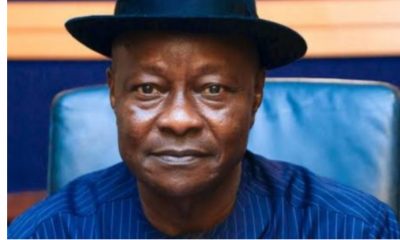
 news2 weeks ago
news2 weeks agoUpdate : Fubara ordered bombing of Rivers Assembly, I am not under duress I resigned, Says ex-Rivers HoS Nwaeke
-
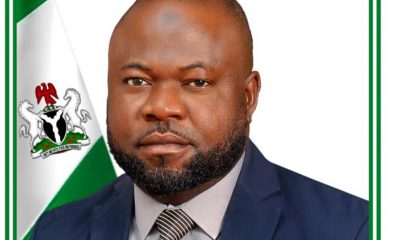
 interview1 week ago
interview1 week agoNIGERIA MECHANIZED AGRO EXTENSION SERVICE PROJECT, A STRATEGIC MOVE TO ALLEVIATE POVERTY – DR. AMINU ABDULKADIR
-

 news1 week ago
news1 week agoTinubu commended Nandap for her leadership, extends Comptroller-General tenure till 2026, says Onanuga
-

 brand2 weeks ago
brand2 weeks agoGTCO Plc Releases 2024 Full Year Audited Results …Pays Shareholders Record Dividend of N8.03k for 2024 Financial Year
-
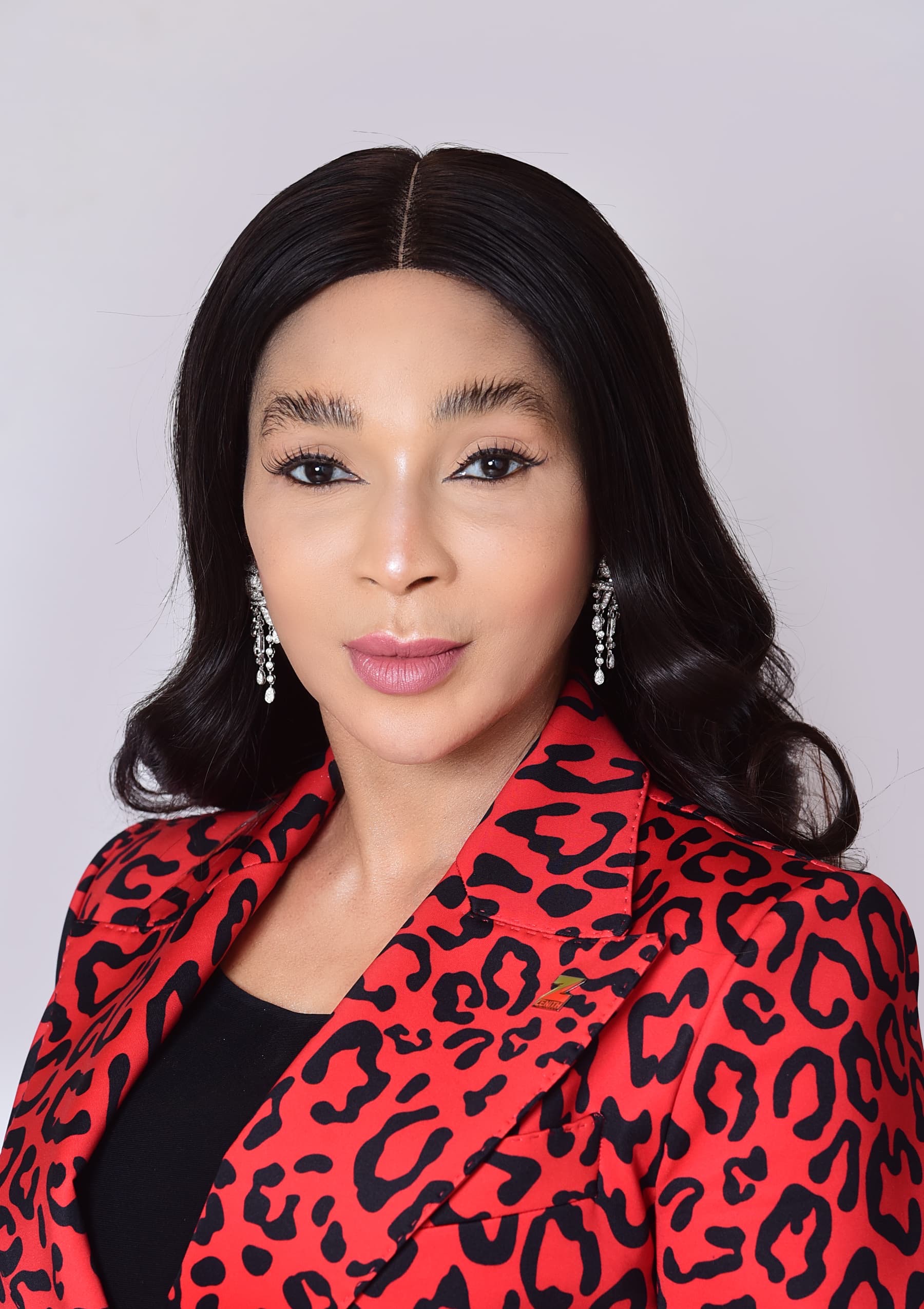
 brand2 weeks ago
brand2 weeks agoZENITHz BANK MAINTAINS SUPERLATIVE PERFORMANCE WITH PBT OF N1.3 TRILLION IN FULL YEAR 2024


